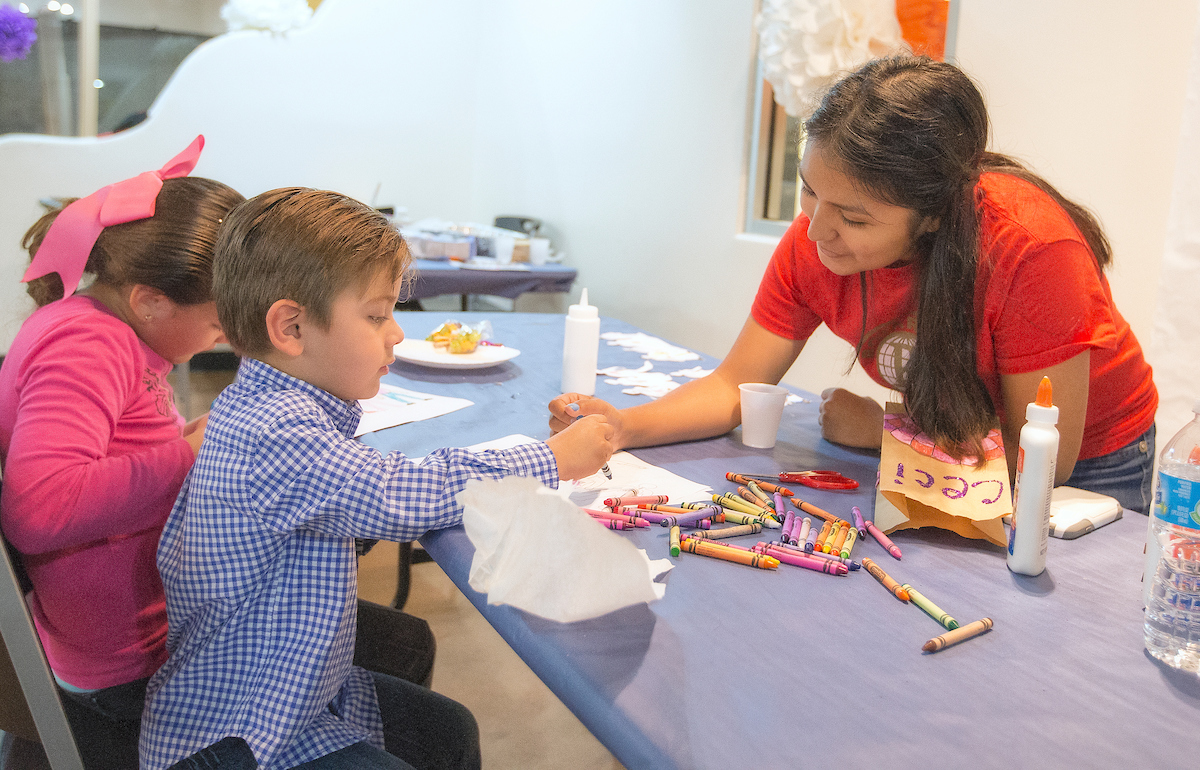Mission
Our faculty helps our students gather the knowledge and skills necessary to become successful educators in the 21st Century. We offer various programs, from Early Care and Early Childhood Studies to Special Education, that equip our students with the skills to become competent professionals capable of working in diverse and inclusive environments. We offer graduate studies in Early Childhood, Special Education, and School Psychology with Board-Certified Behavior Analyst and Licensed Specialist certifications for those wishing to continue their education.
Vision
In the Department of Human Development and School Services (HDSS), students learn to develop healthy knowledge across cultures and lifespans and apply these skills in schools and other settings. HDSS students acquire practical knowledge and flexible thinking. They also learn to work with people and students from diverse backgrounds through their development in social and school environments.
Bachelor's
Early Care and Early Childhood Studies (BS)
Bachelor of Science in Early Care and Early Childhood Studies
Program Modality: Campus
The Bachelor’s degree in Early Care and Early Childhood Studies (non-teacher certification) prepares students to become highly skilled professionals in careers that focus on early childhood development. Students are prepared for educational leadership, and research, and gain expertise in the human development of young children from birth to eight years of age in public and private educational settings.
Early Care and Early Childhood Studies - Teacher Certification (BS)
Bachelor of Science in Early Care and Early Childhood Studies - Teacher Certification
Program Modality: Campus
The Bachelor’s degree in Early Care and Early Childhood Studies with teacher certification prepares students to become educators with an understanding of the unique needs of young children from birth to eight years of age. The program focuses on preparing students with expertise in human development for teaching, research, educational leadership, in public and private educational settings.
Special Education (BS)
Bachelor of Science in Special Education
Program Modality: Campus
The Bachelor of Science in Special Education program at UTRGV will prepare you to help special needs students overcome daily challenges and thrive in their educational journey.
Our curriculum combines in-depth knowledge with practical skills, ensuring you can step into the classroom confidently. By the time you graduate, you will be fully prepared to handle the unique challenges and opportunities of teaching students with diverse learning needs. Plus, you will be eligible for Early Childhood through 6th-grade (EC-6) teacher certification with a Special Education supplement.
UTRGV is recognized by the State Board of Educator Certification, meaning that once you meet all the degree requirements, you will be officially recommended for teacher certification. This endorsement highlights the quality and rigor of our program, making you a standout candidate for potential employers.
Choose UTRGV to pursue a degree in Special Education and start your journey toward an inspiring and fulfilling career!
Master's
Early Childhood (MED)
Master of Education in Early Childhood
Program Modality: Campus
The Master’s degree in Early Childhood is ideal for professionals who aspire to develop expertise in the areas of child development, early language, and literacy development, theory of development, and application of developmentally appropriate practices. The program provides the skills to advocate for quality early education of children from diverse backgrounds.
School Psychology (MA)
Master of Arts in School Psychology
Program Modality: Campus
The Master's degree in School Psychology prepares students to work with children and adolescents from diverse socio-cultural and linguistic backgrounds to help them succeed academically, socially, behaviorally, and emotionally. Upon completion, graduates have expertise in mental health and educational interventions, child development, learning, behavior, motivation, curriculum and instruction, assessment, consultation, collaboration, school law, and school systems. The degree satisfies the requirements to be a School Psychologist and apply for state of Texas licensure.
Students must comply with the program Fitness to Practice policy in order to continue in the program and meet the requirements for the Texas State Board of Examiners of Psychologists (TSBEP) as a School Psychologist credential of the Texas Behavioral Health Executive Council.
Special Education (MEd)
Master of Education in Special Education
Program Modality: Online
Special education students need teachers and advocates with the unique expertise to guide them to a successful future. If your passion matches your ambition, you can earn your M.Ed. in Special Education online with UTRGV in as few as ten months.







